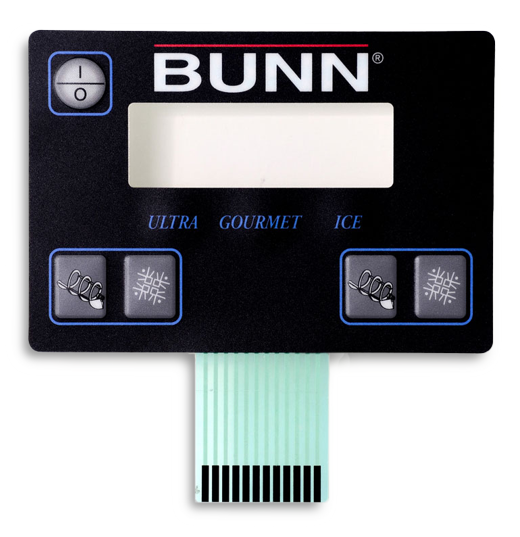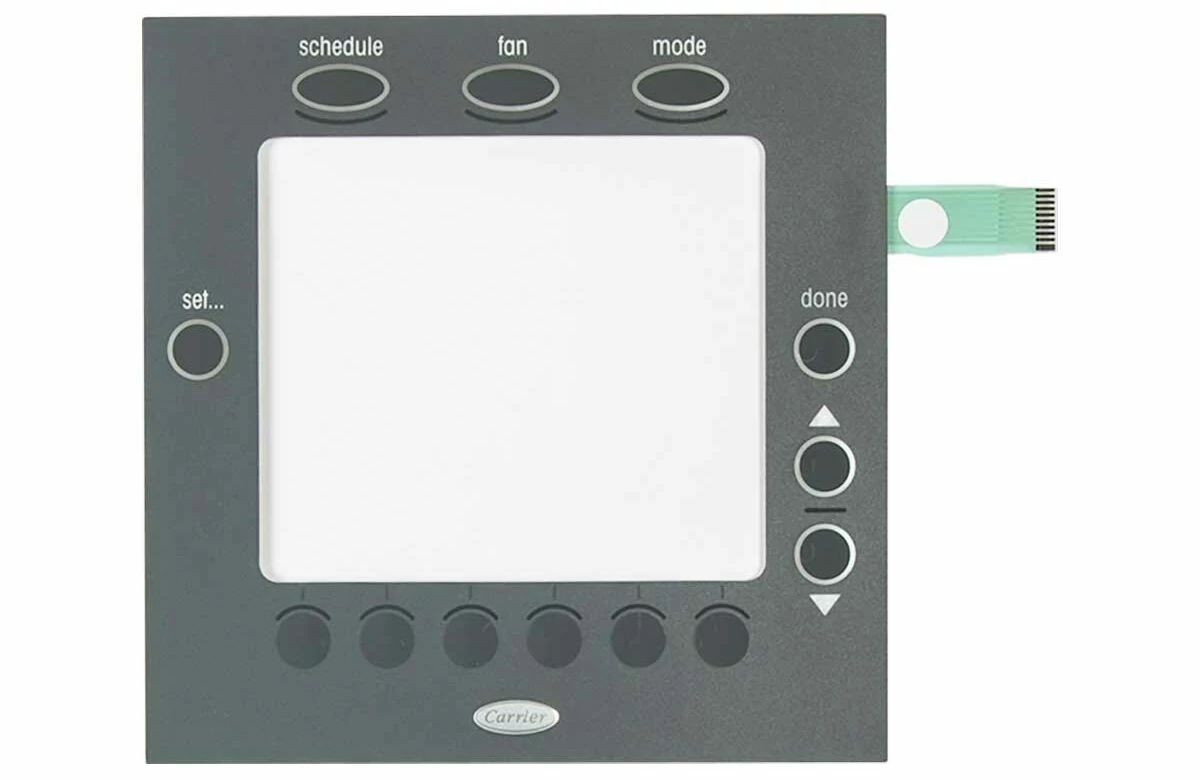A Comprehensive Guide to Membrane Switches for Product Designers
A Comprehensive Guide to Membrane Switches for Product Designers
Blog Article
Recognizing the Value of Membrane Switches in Interface
Membrane buttons are indispensable components in the style of efficient customer interfaces, assisting in not only functionality however likewise boosting aesthetic appeal and individual interaction. As we check out the numerous benefits and future trends connected with Membrane modern technology, it comes to be clear that these switches are more than just parts; they stand for a merging of technology and practicality.
What Are Membrane Switches?

The spacer layer, which contains adhesive homes, permits the separation of the circuit layer from the overlay, ensuring that the button stays in a non-activated state up until pressed. When pressure is put on the overlay, it presses the spacer layer, connecting the gap and completing the circuit in the underlying layer. This layout not just minimizes the physical area required for conventional mechanical buttons yet likewise improves the longevity of the gadget, as Membrane buttons are normally resistant to dirt, dampness, and other environmental aspects.
Frequently found in applications varying from consumer electronic devices to clinical devices, Membrane switches are integral to modern-day technology, providing a reliable and easy to use interface that aligns with modern design demands.
Benefits of Membrane Switches
While various button innovations exist, Membrane Switches offer distinct benefits that make them specifically desirable in numerous applications. One of the main benefits of Membrane switches is their portable design, which permits space-saving implementations in gadgets where real estate is limited. Their thin account not only boosts visual charm but likewise helps with lightweight building and construction.
One more substantial advantage is their resistance to ecological factors. Membrane switches are commonly sealed against wetness, dirt, and impurities, making them suitable for usage popular atmospheres, such as clinical tools and commercial equipment. This toughness expands the lifespan of the switch, reducing maintenance expenses and boosting integrity.
Moreover, Membrane switches can be tailored to fulfill specific design requirements, incorporating distinct graphics and shades that enhance user interaction. Their tactile feedback options can also be tailored to offer a gratifying customer experience. In addition, Membrane buttons are economical, specifically in high-volume applications, as they can be created effectively.
Applications in Numerous Industries

In the consumer electronics market, Membrane buttons prevail in devices such as microwaves, cleaning makers, and push-button controls. Their tactile responses and aesthetic alternatives improve individual experience while providing a streamlined, contemporary appearance. Furthermore, automotive suppliers use Membrane switches in control panel controls and infotainment systems, where space is restricted, and individual engagement is essential.
Additionally, the industrial market leverages Membrane switches in control panels for equipment and devices, permitting user-friendly procedure in frequently rough environments. Their resistance to chemicals and moisture ensures durability and reliability in these applications. Generally, the adaptability of Membrane Switches adds considerably to their prevalent use, making them vital in different technical domain names.
Design Considerations for Membrane Buttons

When designing Membrane buttons, numerous vital considerations must be taken into consideration to make sure optimum functionality and user experience. The selection of materials is important; picking resilient, top quality substrates can boost the button's durability and resistance to environmental variables such as moisture and temperature level variations.
Secondly, the design of the visuals overlay should focus on clearness and simplicity of use. Icons and text should be legible, and the design ought to promote instinctive communication (membrane switches). In addition, responsive comments is vital; including a responsive dome or various other devices can improve the user experience by offering physical confirmation of activation
One more crucial aspect is the button's electric efficiency. Designers have to make certain my blog that the conductive traces are appropriately made to lessen resistance and avoid signal interference. This entails examining the needed actuation pressure and making sure published here compatibility with the electronic elements they will certainly interface with.

Future Patterns in Membrane Innovation
As modern technology proceeds to development, Membrane switches are positioned to develop significantly, driven by technologies in products and manufacturing methods. One emerging pattern is the consolidation of innovative products, such as conductive inks and flexible substratums, which improve sturdiness and decrease the total weight of Membrane switches. These products not only enhance the tactile action but also enable the layout of buttons that can stand up to harsher environmental problems.
Moreover, the assimilation of touch-sensitive technologies is transforming standard Membrane Switches right into even more interactive interface. Capacitive touch sensors installed within Membrane button panels can provide a more intuitive and responsive individual experience, straightening with the expanding need for streamlined, contemporary styles in consumer electronic devices.
In addition, developments in printing techniques, such as electronic and 3D printing, allow quick prototyping and modification of Membrane switches. This flexibility permits manufacturers to respond a lot more rapidly to market demands and consumer choices.
Finally, sustainability is ending up being a substantial emphasis, with manufacturers discovering eco-friendly materials and processes. As these trends unravel, the future of Membrane innovation assures boosted performance, aesthetic allure, and ecological duty, solidifying their role in innovative user interfaces across numerous industries.
Verdict
In conclusion, Membrane Switches stand for an important component in the layout of user interfaces, integrating capability find more with visual adaptability. As developments in technology proceed, the development of Membrane switches is anticipated to more refine customer interfaces, driving advancement and improving use in a significantly complex technological landscape.
Membrane switches are indispensable elements in the design of reliable user interfaces, helping with not only capability but additionally improving aesthetic appeal and individual interaction.Membrane Switches serve as a crucial part in various individual interfaces, facilitating a smooth communication between individuals and digital gadgets.While various button technologies exist, Membrane Switches deal distinct advantages that make them specifically preferable in different applications.In addition, Membrane switches can be personalized to satisfy certain layout requirements, integrating one-of-a-kind graphics and colors that boost individual communication.In verdict, Membrane Switches stand for a crucial component in the layout of individual interfaces, integrating performance with aesthetic adaptability.
Report this page